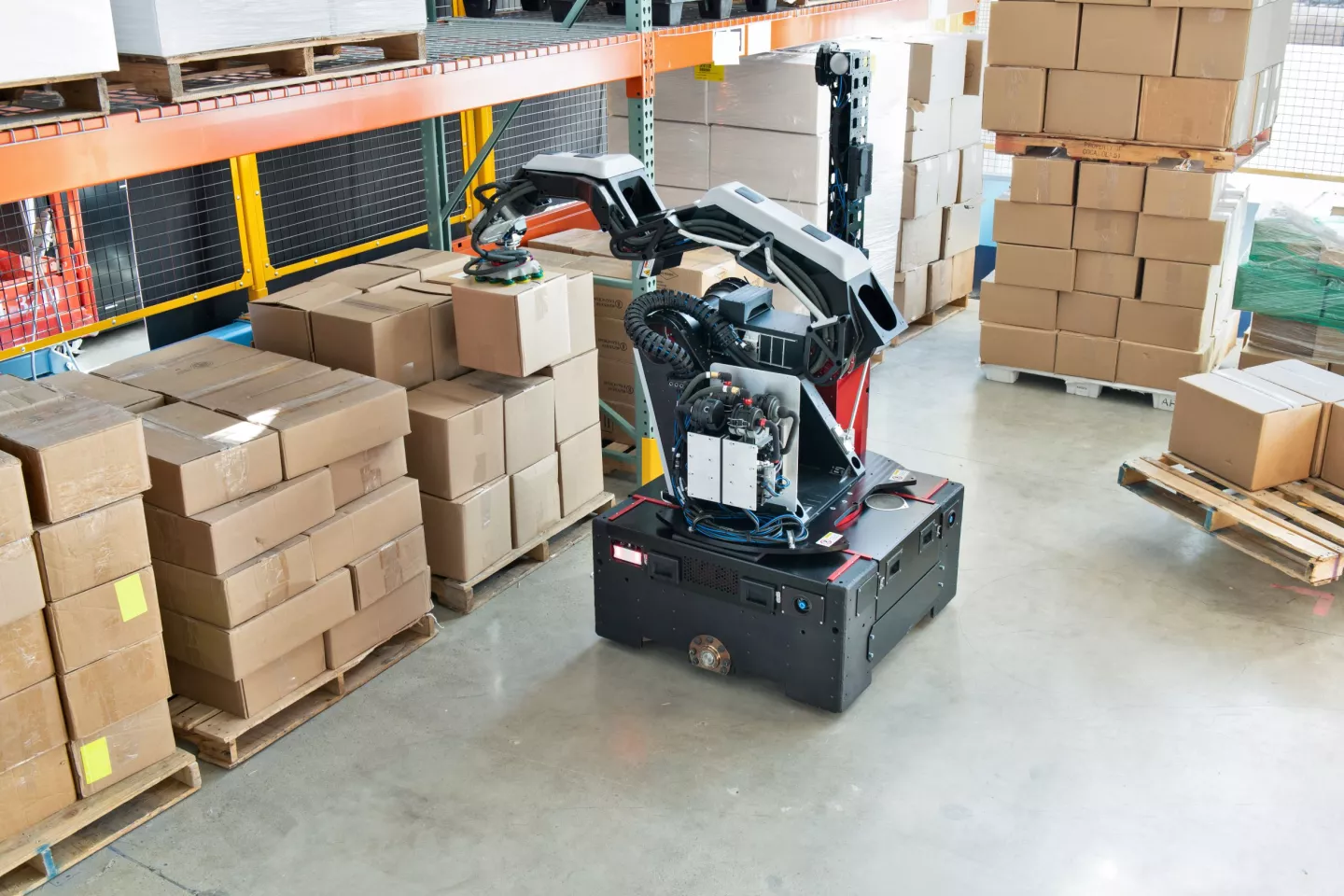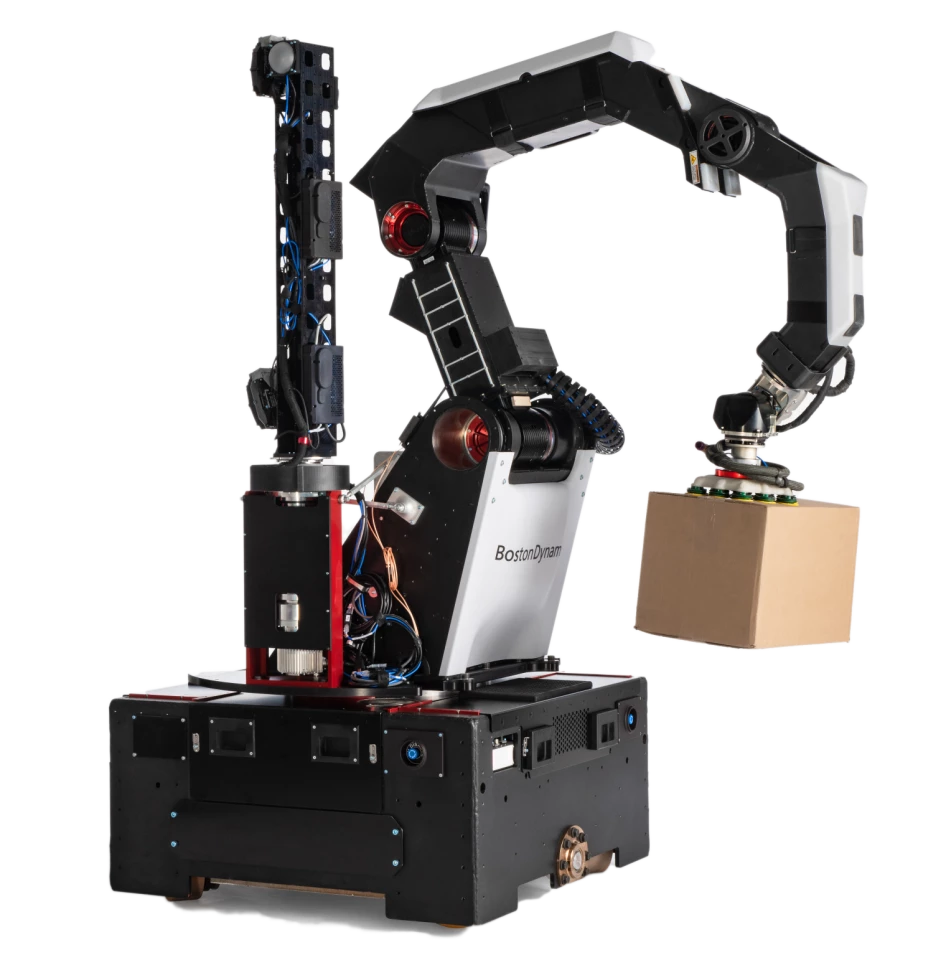Boston Dynamics has revealed its first robot developed specifically for commercial applications. Named Stretch, the robot has been designed for warehouse work, purpose-built for mobile deployment in existing spaces.
Continuing the iconic robotic company’s shift into commercial operations, Stretch is an evolution of Boston Dynamics’ prior Handle prototype. Early demonstrations of Handle’s ability to pick and place boxes hinted at the company’s ambitions to create a warehouse robot.
However, it was always clear the bipedal wheeled design could not easily fit into many pre-existing commercial spaces. Its big pendulum-like swinging movement required so much space the company quickly realized how inefficient Handle was in pre-existing commercial environments.
With Stretch the company introduces its second commercially available robot. Unlike its first product Spot, a robot dog developed over many years with no explicit commercial application, Stretch is expressly designed to efficiently tackle tasks in warehouse and distribution centers.

Most current warehouse automation technologies are fixed to a single spot, and the mobile robots that are currently available are relatively slow compared to human workers. Stretch is cleverly designed to fill that gap in the market, offering omni-directional movements and computer vision technology allowing it to traverse complex and tight spaces.
“Warehouses are struggling to meet rapidly increasing demand as the world relies more on just-in-time delivery of goods,” notes Boston Dynamics CEO Robert Playter. “Mobile robots enable the flexible movement of materials and improve working conditions for employees. Stretch combines Boston Dynamics’ advancements in mobility, perception and manipulation to tackle the most challenging, injury-prone case-handling tasks, and we’re excited to see it put to work.”

The dimensions of Stretch’s base have been designed to exactly mirror the size of a standard pallet, meaning the robot will be able to easily adapt to the footprint of most existing warehouse spaces. The company suggests the robot at this stage can move around 800 boxes per hour.
An Early Adopter program has been announced to pilot test Stretch in warehouse environments and refine the prototype for mass production.
No price for Stretch has yet been announced and the company expects commercial availability sometime in 2022. For comparison, Boston Dynamics’ Spot robot is currently priced around US$75,000.
Take a look at Stretch in action in the video below.
Source: Boston Dynamics






